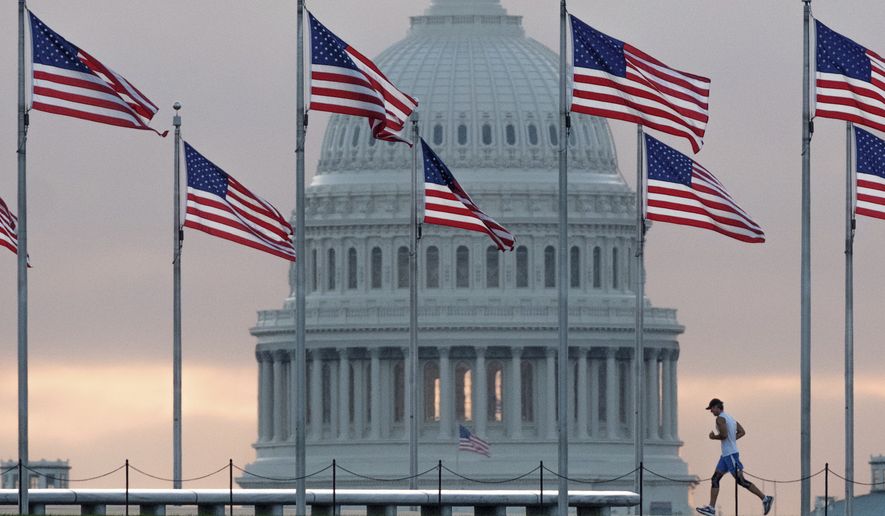ANALYSIS/OPINION:
Politicians have ulterior motives for everything.
The Trump administration is no different.
A recent example is the March 28 decision of Commerce Secretary Wilbur Ross to add a citizenship question to the 2020 decennial census. The professed objective is to strengthen protection of black or Hispanic voters under section 2 of the 1982 Voting Rights Act (VRA). The authentic motive is to spike an undercount of immigrants by discouraging responses to benefit the Republican Party and President Trump’s ambitions. A few pages of history are worth volumes of logic.
Since 1950, the U.S. Census Bureau in the Department of Commerce has omitted a citizenship question on the decennial census of “persons” mandated by Article 1, section 2, clause 3 of the U.S. Constitution, as amended by section 2 of the Fourteenth Amendment, to allocate representation in the U.S. House of Representatives among the several states.
In 1982, Congress amended section 2 of the Voting Rights Act to prohibit electoral rules or practices that “result” in the denial or abridgement of the right to vote based on race.
During the 36 years that have elapsed since the amendment, no racial minority has pleaded with the Census Bureau to add a citizenship question to facilitate proof of violations.
On Dec. 12, 2017, President Trump’s Department of Justice requested the Census Bureau to reinstate a citizenship question. The stated purpose was to provide census block level citizenship voting age population (CVAP) data for more effective enforcement of section 2. But black and Hispanic voters opposed Mr. Trump in 2016 by margins of 9-1. And Mr. Trump is not in the business of assisting adversaries. Revenge is his wont. Moreover, an altruistic motive behind the citizenship question is doubtful when the purported beneficiaries are resisting the gift.
Mr. Ross made the decision over the objections of former census directors representing both Republican and Democratic administrations, 60 members of Congress, 161 Republican and Democratic mayors, 19 state attorneys general, more than 170 civil rights organizations, and prominent business leaders, among others. The Trump administration’s ulterior motive is frightening immigrants or racial minorities from responding, which would increase an undercount of “persons” in the decennial census and advantage red state representation in the House of Representatives. (Immigrants and racial minorities mostly reside in blue states).
Mr. Ross disputed that a citizenship question would depress response rates because of fear of deportation or law enforcement. Among other things, the secretary pointed to the absence of scientifically verified proof, and the confidentiality of responses. But history was neglected.
The Second War Powers Act of 1942 temporarily lifted the privacy protection of census data to further the war effort on the heels of Pearl Harbor. The Census Bureau supplied Treasury Secretary Henry Morgenthau with the names and addresses of persons of Japanese ancestry in the Washington, D.C., area. The bureau also released neighborhood block data to alert officials in California, Arizona, Wyoming, Colorado, Utah and Arkansas of where Japanese-Americans resided. The information was used in herding 120,000 Japanese-Americans into racist concentration camps.
The United States has been at war since 9/11 with no light at the end of the tunnel. On Nov. 16, 2016, a former spokesman for a major Trump super PAC, Carl Higbie, related that a registry for immigrants from Muslim countries was under discussion by Mr. Trump’s immigration advisers and would be legal, “We’ve done it with Iran back awhile ago. We did it during World War II with the Japanese,” Mr. Higbie said.
President Trump’s xenophobia is notorious. He has voiced suspicion or disparagement of Muslims, Mexicans, Nigerians, Haitians, and immigrants generally. Exemplary is his infamous polemic, “When Mexico sends its people … They’re bringing drugs. They’re bringing crime. They’re rapists.”
“When Mexico sends its people, they’re not sending their best. They’re not sending you. They’re not sending you. They’re sending people that have lots of problems, and they’re bringing those problems with us. They’re bringing drugs. They’re bringing crime. They’re rapists.”
The probability that Congress will enact a second edition of the Second War Powers Act of 1942 is non-trivial — especially in response to an international terrorist attack on the United States. A citizenship question on the 2020 census will thus depress responses from immigrants or racial minorities — even if the magnitude lacks the exactitude of Euclidean geometry.
For 68 years, the decennial census has omitted a citizenship question without provoking complaints. The initiative to add the question came from the Trump administration with a political conflict of interest and a patently concocted reason. Congress should prohibit the addition by statute. “If it ain’t broke, then don’t fix it.”




Please read our comment policy before commenting.